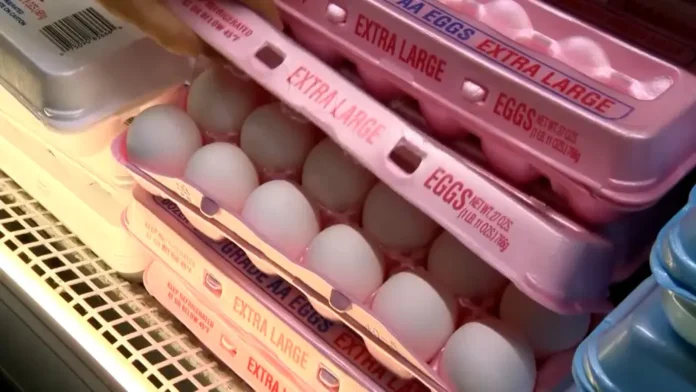In recent months, egg prices have experienced significant fluctuations, influenced by factors such as avian influenza outbreaks and seasonal demand. As of February 2025, the average cost for a dozen Grade A large eggs reached $5.90, up from $4.95 in January.
This surge is primarily attributed to the avian flu, which led to the culling of over 166 million birds, drastically reducing supply.
Historically, egg prices have been subject to volatility. For instance, in 1980, a dozen eggs cost $0.88, and prices remained below $2 from March 2016 until early 2022. However, by January 2023, prices had more than doubled to $4.80 per dozen, largely due to supply disruptions from avian flu outbreaks.
Despite recent price hikes, there are indications of potential relief. The USDA reports easing egg shortages and dropping wholesale prices, suggesting that retail prices may soon decrease.
Additionally, the U.S. government has announced a $500 million investment to strengthen biosecurity measures and $400 million to support farmers, aiming to stabilize the egg supply chain.
Consumers are advised to stay informed about these developments, as market conditions can change rapidly. Monitoring local grocery prices and adjusting purchasing habits accordingly can help mitigate the impact of these fluctuations.




